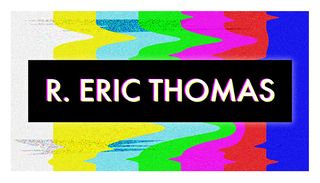Black Panther Is the Secret That Got Out
In a new monthly column for ELLE, R. Eric Thomas sounds off on all things culture. Find out what to read, watch, listen to, and exhaustively talk about right here.
When I was a kid, I felt like The Wiz was a secret. I was obsessed with the 1970s-set, all-Black riff on The Wizard of Oz starring Diana Ross as a Harlem-bound Dorothy and Lena Horne as Glinda the Good. The kids at my Black church were, too. But I’d never met a white person who had heard of it. Back then, it was our secret.
Decades later, I was reminded of the secret joy of this all-Black Oz as I sat in a press preview screening for Black Panther. It appeared like every journalist was a person of color, and there was an electricity and camaraderie in the room that I’d rarely felt anywhere else before. The screening had cookout energy. It felt like something that, for a brief moment, was only for us.
More From ELLE

A Marvel movie is, by design, very much not a secret. You don’t cross the billion-dollar mark by being circumspect. But with a focus on an African nation that has been kept secret, the film entertained a “just us” conversation.
I have not yet received an invitation to a “just us” screening of the sequel, Black Panther: Wakanda Forever, which opens this month. I’m tempted to think of this as my disinvitation from the cookout. Then again, the events of Black Panther led to the revelation of Wakanda to the world; the secret is out. (That said, Marvel—call me, beep me, if you want to reach me.)
The question waiting for us in the new film is what happens when the secret nation becomes part of the larger world. I presume that the benefits of incorporating Wakandans into the global structure, post-Blip, will comprise much of the plot. But honestly, I’d be absolutely here for two and a half hours of Wakandan community meetings debating the value of keeping things on the q.t., and what we cede when we reveal our secret worlds. It’s not as simple and consequence-free as sharing a formerly secret piece of pop culture. (Although if you tell me you hate The Wiz, we’re throwing hands.) As rewarding as it can be to open up a community or a culture, you do so knowing that it will be irrevocably changed. And, perhaps, consumed. If what was once “just for us” is now for everybody, what is left for just us?
That first Black Panther screening felt personal. I think I’ll always be chasing that. Recall with me the moment when T’Challa (Chadwick Boseman) is first ferried back to Wakanda by Okoye (Danai Gurira). They sail over treetops, slip through an almost invisible vibranium bubble, and are suddenly smack-dab in the middle of a bustling, technologically advanced metropolis. “We are home,” Okoye calls, a huge grin spreading across her face. It was a greeting for every person in the theater. In that screening, we heard it loud and clear. Maybe you heard it loud and clear in your theater, too. Maybe you’re going to finish reading this and pull up the scene on video and feel it all over again.
That’s what appealed to me about The Wiz. In a world full of narratives that seemed to exclude people who looked like me, it was an invitation to a sense of belonging, if you knew where to look. That’s the energy I’m taking into the theater for Black Panther: Wakanda Forever. I want to be entertained, but I’m searching for connection.
One of the tantalizing ideas of The Wiz and Black Panther is that home is not in some far-off Oz, but rather just through the tree line, hidden in plain sight. Or, in pop culture, the discovery of home is just through the doors of a theater or under the cover of a book. That feeling is waiting for you.
This article appears in the November 2022 issue of ELLE.
R. Eric Thomas is a columnist for ELLE.com, where he skewers politics, pop culture, celebrity shade, and schadenfreude. He is also the author of Here for It: Or, How to Save Your Soul in America, a memoir-in-essays.


